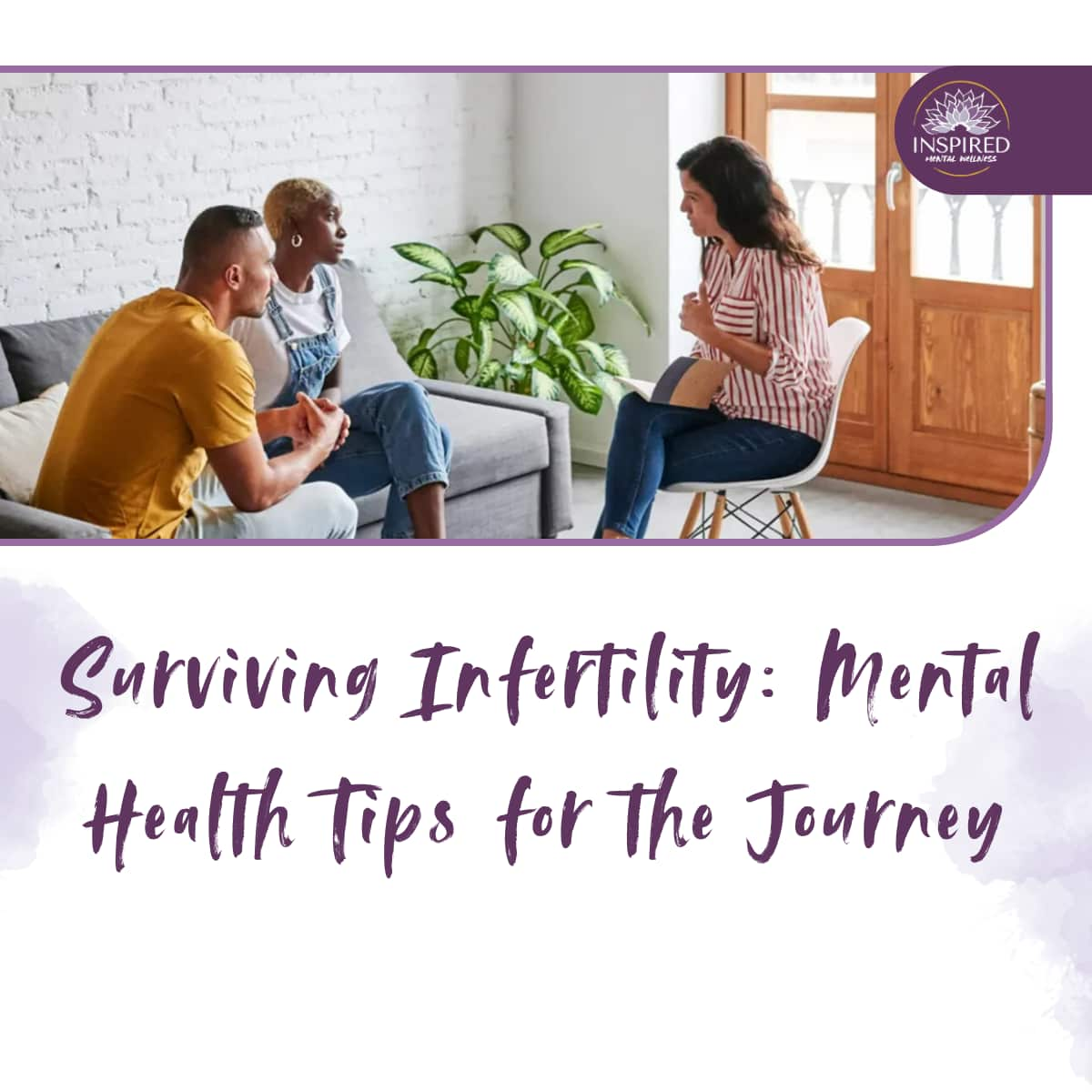The Inspired Blog
March 20, 2025

Infertility is a very personal and emotionally difficult issue that affects a large number of individuals and couples all over the United States. The emotional toll of infertility can be daunting, regardless of whether you are undergoing fertility treatments, looking for support for in vitro fertilization, or contemplating egg donation or other options. It is essential to place a priority on mental health during this journey to retain emotional resilience and to make decisions based on accurate information. This article will provide you with a methodical way to deal with infertility while ensuring that your mental health continues to be a top priority.
Accept your feelings and permit yourself to cry.
Feelings of frustration, despair, guilt, and even hostility are common when dealing with infertility. Whether it’s a failed round of in vitro fertilization (IVF) or the inability to conceive naturally, it’s vital to acknowledge that these sentiments are legitimate and to permit yourself to grieve the losses that you experience along the journey. A helpful method for processing these feelings is to seek emotional support from infertility support groups in Texas or to have a conversation with a fertility counselor who specializes in this field.
Seek Professional Support from a Fertility Counselor.
Not only is infertility a physical illness, but it also has significant psychological repercussions that can influence your relationships, your sense of self-worth, and your entire well-being. It is possible to obtain individualized solutions for the management of stress, anxiety, and emotional exhaustion by consulting a fertility-focused therapist in Texas, particularly in regions such as Austin and Fort Worth, where specialist counseling services are accessible.
Manage Stress Through Mindfulness and Self-Care
Mindfulness practices like journaling, deep breathing exercises, and meditation can significantly reduce stress. Holistic techniques like yoga and acupuncture have been associated with enhanced emotional well-being during fertility treatments. Many fertility centers in Dallas and Houston encourage these practices in their fertility treatments. When things are difficult, make self-care a priority by participating in activities that provide delight, such as spending time in nature, reading, or taking a quiet weekend trip to the Texas Hill Country, can help reestablish a sense of equilibrium.
Stay Informed Without Becoming Overwhelmed
The desire to investigate every conceivable reproductive treatment option, from in vitro fertilization (IVF) to donor egg programs, is very natural. The excessive use of the internet, on the other hand, might result in an overwhelming amount of information and a rise in worry. Rather than that, you should seek advice from reliable sources, such as fertility doctors in Texas, and think about becoming a member of local infertility support organizations that offer factual information without causing you any undue worry. Request that your physician provide you with a list of recommended reading materials if you are receiving treatment at a clinic. This list will allow you to remain educated without feeling overwhelmed.
Open Communication with Your Spouse
Infertility can put a significant burden on relationships. It is essential to communicate with your spouse openly and honestly about thoughts, feelings, and the various therapy options available. Participating in couples counseling in Texas, particularly with therapists who have experience working with reproductive concerns, can provide helpful information on how to keep a strong emotional connection during the process.
In conclusion,
Nobody should negotiate infertility by herself. Professional therapy might be a lifesaver during your fertility treatment journey in Texas; call for emotional assistance. If you find yourself battling the psychological effects of infertility, think about consulting Inspired Mental Wellness. Their knowledgeable fertility counseling services offer kind assistance to help you regulate your path toward parenting, handle emotions, and reduce stress.